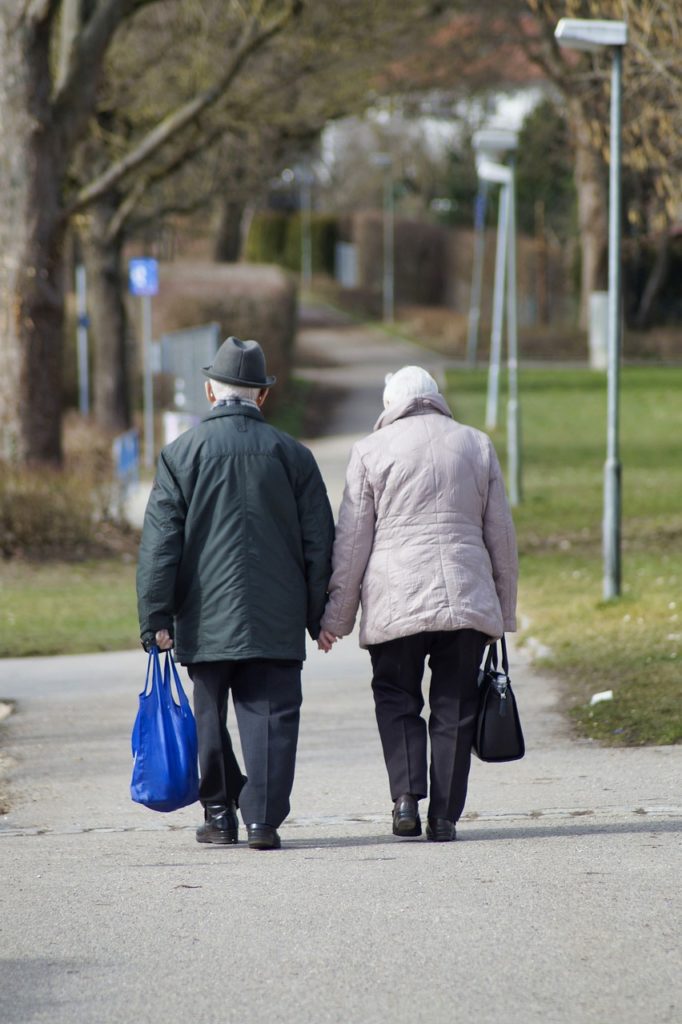The Domestic Abuse Act of 2021 gives legal weight to elder domestic abuse, a problem that is frequently disregarded in familial or romantic settings.
The act created a legal definition of domestic abuse. In summary, domestic abuse is where:
- both the person who is carrying out the behaviour and the person to whom the behaviour is directed towards are aged 16 years or over (with no upper age limit)
- both persons are “personally connected” (including ex-partners and family members)
You do not have to be living with the person who is being abusive to you.
As our population ages, the issue of elder abuse has emerged as a concerning and often overlooked problem in many societies. This mistreatment can take various forms and can occur in different settings, including at home or within communities.
Older people are particularly vulnerable to domestic abuse, often unaware that help is available. Fear and long-term health conditions can be major barriers to seeking and getting help, and sometimes spotting and challenging abuse in the elderly can be difficult.
Unveiling elder domestic abuse
Elder abuse within domestic settings takes diverse forms, encompassing physical harm, emotional trauma, economic exploitation, neglect, and sexual mistreatment. Perpetrators subject older adults to distressing behaviours with lasting effects.
Older people can experience domestic abuse from their current or former spouse or intimate partner (including one no longer living with them), and adult child, sibling or other family member who are personally connected to them.
It is also believed that abuse of older people is still significantly underreported, despite the recent rise. Tragically, many will suffer in silence, behind closed doors, in shame or embarrassment, or because they have normalised the behaviour over many years.
Identifying signs of elder domestic abuse
Recognising elder abuse within domestic confines remains challenging due to underreporting. Indicators like unexplained injuries, abrupt behavioural changes, social withdrawal, signs of neglect or financial exploitation, and unsanitary living conditions often hint at potential mistreatment.
However, it’s important to note that older people facing domestic abuse may encounter additional barriers. Professionals or friends might not readily believe them, assuming their complaints stem from underlying health issues or cognitive impairments. This disbelief can further complicate the reporting and intervention process, emphasising the need for heightened sensitivity and thorough investigation when suspicions arise.
Learn the signs of domestic abuse and how you can support someone experiencing it here
Accessing vital support services
- Information and support services play a pivotal role in preventing and addressing elder abuse. Organisations like Somerset Domestic Abuse Service offer valuable assistance. They provide support through various means. Here are some of the things they can advise on:
- Recognising the signs of domestic abuse
- Steps you can take
- Community drop-ins
- Supporting someone who is experiencing domestic abuse
- Local and national support
Collaborative measures for prevention
Collaboration is key in preventing elder domestic abuse. Measures involve:
- Raising Awareness: Educating on elder abuse in domestic contexts aids in early identification.
- Support for Caregivers: Providing resources and assistance reduces stress and minimises abuse risks.
- Regular Check-ins: Sustained communication with isolated older people fosters a sense of support.
- Legal Safeguards: Reinforcing laws protecting elder rights and offering support services is vital.
Upholding dignity and well-being
Using support services like Somerset Domestic Abuse Service and championing preventive measures through education, caregiver support, regular check-ins, and legal reinforcement aims to create safer environments for elderly individuals. Safeguarding their dignity and well-being within domestic settings remains a shared societal responsibility.
Further support
If you are experiencing any form of domestic abuse, worried about someone you know, or are concerned about the impact of your behaviour towards others, then help is available: somersetdomesticabuse.org.uk or by telephoning 0800 69 49 999 – between 8am – 8pm, 7 days a week.
In an emergency you should always dial 999. If you are worried that an abuser may overhear your call you can remain silent, tap the phone and dial 55 when prompted by the operator who will send help.
If you are deaf, hard of hearing or speech-impaired you can register with emergencySMS.net. Once registered you will be able to send a text to 999 if you require help in an emergency.
Related articles:
The cost of living crisis – a catalyst for increasing levels of domestic abuse.
Beyond the bruises – Somerset’s new fight against non-physical domestic abuse

